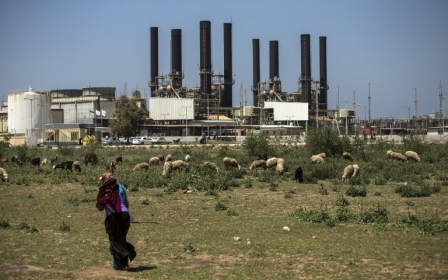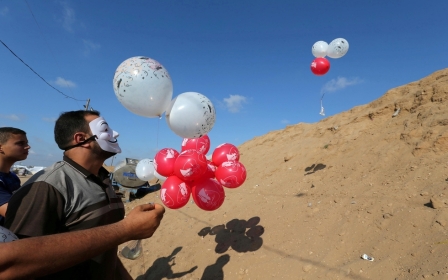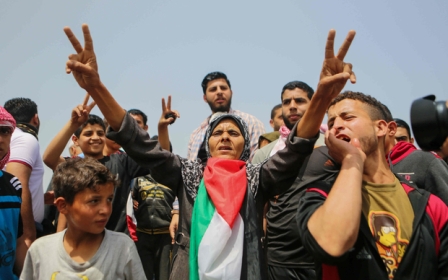Qatari-bought fuel enters Gaza in bid to ease humanitarian crisis

Qatari-bought fuel has arrived at the besieged Gaza Strip's only power station after entering through Israel in a bid to alleviate conditions in the Palestinian enclave, a Hamas spokesman and sources have said.
Tuesday's delivery could help ease months of protests and clashes along the border between Israel and Hamas-run Gaza, which has been under a crippling Israeli blockade for more than a decade.
But it was met with criticism by officials close to Palestinian Authority (PA) President Mahmoud Abbas, whose rival administration was not involved.
UN officials and Egypt have in recent weeks pursued indirect talks between Hamas and Israel. Israeli officials however refused comment on the delivery.
A spokesman for the United Nations secretary general hailed Qatar's $60m donation for the fuel, which is expected to be spent over several months.
"Additional fuel for the Gaza power plant remains the fastest and most immediate way to increase electricity and help alleviate the humanitarian and related public health needs on the ground," Stephane Dujarric said at a briefing in New York.
He said two trucks carrying 70,000 litres of fuel had entered, while deliveries were set to increase to 15 trucks daily in the coming days.
A Palestinian source at the Karam Abu Salem border crossing in southern Gaza, the only goods crossing between the Gaza Strip and Israel, earlier put the number at six trucks and a far higher number of litres.
Journalists from the AFP news agency saw at least one truck arriving at the power station in Gaza City.
"The Qatari fuel to the Gaza Strip's power plant today is aimed at partially improving electricity [supply] in Gaza," Hamas spokesman Hazem Qassem told AFP.
'No political motives'
For months Gaza residents have been receiving only four hours of mains electricity a day on average.
The UN has warned that Israel's 11-year blockade of the enclave has resulted in a "catastrophic" humanitarian situation.
A Qatari official said the supply of fuel was intended to "to avert an escalation in the existing humanitarian disaster from becoming worse."
"There are no political motives behind this step," the official added.
"It is important to note that this operation is taking place through the United Nations which is authorised to seek the necessary permissions."
In a statement on Tuesday Azzam al-Ahmad, a senior official close to Abbas, threatened retaliatory measures if the fuel deliveries continued.
Hamas seized control of Gaza from Abbas's Palestinian Authority in 2007 following an election which Hamas won the previous year.
Multiple reconciliation attempts aimed at restoring the PA to power in Gaza have failed.
Qassem said that the deliveries were facilitated "through the United Nations because of the vacuum left by the PA".
Abbas says that making deals with Hamas amounts to recognising their control over Gaza in place of the PA.
Israeli warning
Israeli Prime Minister Benjamin Netanyahu said on Tuesday that Abbas was exacerbating Gaza woes and thereby fuelling its residents' aggression toward Israel.
"Abu Mazen is strangling them economically and they lash out at Israel," he told a news conference, referring to Abbas by his Arabic nickname.
Netanyahu did not specifically refer to the oil shipment but spoke of "attempts to reach a practical solution so that he will stop this strangulation".
He said that if Gaza tension reached boiling point and brought an uptick in attacks on neighbouring southern Israel "the price they will pay will be very great".
"I'm not looking to launch unneccessary wars," he said. "But if there's no alternative you wage war with all your strength."
Hamas and Israel have fought three wars since 2008 and the recent unrest has raised fears of another conflict.
But there have been attempts in recent weeks by UN officials and Egypt to reach a long-term truce between the sides through indirect talks.
Middle East Eye propose une couverture et une analyse indépendantes et incomparables du Moyen-Orient, de l’Afrique du Nord et d’autres régions du monde. Pour en savoir plus sur la reprise de ce contenu et les frais qui s’appliquent, veuillez remplir ce formulaire [en anglais]. Pour en savoir plus sur MEE, cliquez ici [en anglais].




